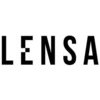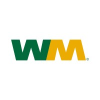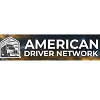This position has the authority, responsibility, and shift accountability for the delivery of nursing care through the use of the nursing process.
The incumbent accepts accountability, applies competent clinical knowledge skills, and uses independent nursing judgment for care provided by self and by health care providers to whom care is delegated to achieve quality patient care outcomes.
The incumbent must demonstrate the knowledge and skills at the novice level necessary to provide care that is relevant to the patient(s) under their care, as well as apply principles of growth and development over the life span.
The incumbent also must possess the ability to assess and interpret patient data needed to identify each patient's requirements relative to his or her age-specific needs.
This role provides professional nursing care for patients in an inpatient hospital setting.
MINIMUM QUALIFICATIONS :
EDUCATION, CERTIFICATION, AND / OR LICENSURE :
1. Current unencumbered licensure with the WV Board of Registered Professional Nurses, or appropriate state board where services will be provided, as a registered professional nurse OR Current multi-state licensure through the enhanced Nurse Licensure Compact (eNLC).
2. The Graduate nurse must obtain licensure within 60 days of hire - Licenses must be obtained before expiration date of the temporary permit unless deemed not possible as a result of the temporary closure of NCLEX testing centers due to circumstances such as pandemic.
3. Obtain certification in Basic Life Support within 30 days of hire date.
EXPERIENCE :
1. Less than 12 months of nursing experience
CORE DUTIES AND RESPONSIBILITIES : The statements described here are intended to describe the general nature of work being performed by people assigned to this position.
They are not intended to be constructed as an all-inclusive list of all responsibilities and duties. Other duties may be assigned.
1. Demonstrates safety and continuity of care using methods such as documentation, handoff tools / processes, etc.
2. Demonstrates ability to create plan of care using the nursing process : assessment, diagnoses, intervention, and evaluation of outcomes.
3. Recognizes patient safety concerns through appropriate resources.
4. Provides education based on unique learning needs of patient.
5. Incorporates patient individuality & mutuality data in delivery of care.
6. Performs an adequate patient assessment and documentation.
7. Demonstrates teach-back method to evaluate effectiveness of education.
8. Utilizes Evidence-Based Practice (EBP) in nursing care.
9. Participates in organizational patient-centered care model.
10. Documents problems and issues in the plan of care.
11. Demonstrates growth in ability to care for more complex patients utilizing consultation with experienced colleagues.
12. Demonstrates a commitment to lifelong learning through self-reflection and inquiry for learning and personal growth.
13. Retains accountability for delegated nursing care.
14. Recognizes scope of practice for all interprofessional team members.
15. Participates in holistic, culturally sensitive data collection.
16. Assesses the impact of family dynamics on healthcare consumer health and wellness.
17. Integrates the American Nursing Association (ANA)’s code of ethics to guide nursing practice.
18. Identifies discriminatory health care practices in culturally diverse populations.
19. Individualizes care based on beliefs, barriers, and readiness to learn of patients.
PHYSICAL REQUIREMENTS : The physical demands described here are representative of those that must be met by an employee to successfully perform the essential functions of this job.
Reasonable accommodations may be made to enable individuals with disabilities to perform the essential functions.
1. The National Institute for Occupational Safety and Health recommends minimizing the need for employees to manually lift patients, and limit safe patient handling to 35 pounds.
All transfers, lifts and re-positioning will be completed utilizing the lift equipment and / or other patient handling aids as indicated by the patient’s profile and appropriate algorithms.
2. Heavy / Hard work : Work requires strength and / or stamina, lifting, moving, stooping, reaching, standing, walking, and carrying of materials and equipment weighing 40+lbs.
3. Visual acuity must be within normal range.
4. Hearing within normal range is required (i.e. to assess breath sounds, bowel sounds, apical pulse, monitors, etc.)
WORKING ENVIRONMENT : The work environment characteristics described here are representative of those an employee encounters while performing the essential functions of this job.
Reasonable accommodations may be made to enable individuals with disabilities to perform the essential functions.
1. Working protracted or irregular hours.
2. Working around biohazards.
3. Working around infectious diseases.
4. Working with or near the deceased.
5. Working with hands in water.
6. Working with electrical hazards associated with patient care equipment.
SKILLS AND ABILITIES :
1. Possesses the interpersonal skills to positively and effectively communicate, negotiate, and resolve conflict.
2. Uses competent clinical practice and critical thinking skills to efficiently deliver patient care with all health care providers while maximizing efficient use of resources.
3. Ability to be flexible in response to changes in work volume, staff and scheduling changes.
4. Ability to work successfully under highly stressful conditions and capable of adapting to varying workloads and work assignments on a constant basis.
The CAPE program is a system-wide clinical advancement program (clinical ladder) to enhance professional development, provide a reward system for quality clinical performance, promote quality nursing, and improve job satisfaction for inpatient direct care nurses.
Level 1
- No experience required
- All graduate nurses with less than 12 months of experience enter at Level one with a diploma, ADN, BSN, or higher
Level 2
- Meets requirements for previous level
- One year of experience.
Level 3
- Meets requirements for previous levels
- Two years of experience, plus one specialty certification
- Certification is Preferred but not required
- Required competencies to include demonstration of regularly being a charge nurse and / or precepting new staff or nursing students
Level 4
- Available to those with a BSN or higher or nurses with ADN / diploma with 5 years of experience
- one specialty certification is required
- Required competencies to include demonstration of regularly being a charge nurse and / or precepting new staff or nursing students
- Required competencies to include demonstration of participation in QI and / or shared governance at the unit level
Level 5
- Available to those with an MSN or higher with 4 years of experience, or nurses with a BSN with 4 years of experience and a health-related Master’s Degree, or nurses with a BSN and 5 years of experience
- One specialty certification is required
- Required competencies to include demonstration of regularly being a charge nurse and / or precepting new staff or nursing students
- Required competencies to include demonstration of participation in QI and shared governance at the organization level
Level 6
- Available to those with an MSN or higher degree with 7 or more years of experience. Consideration is given to other health-related advanced degrees that would assist with direct patient care at the bedside
- One specialty certification is required
- Required competencies to include demonstration of regularly being a charge nurse and / or precepting new staff or nursing students
- Required competencies to include demonstration of participation in QI and shared governance at the system level






